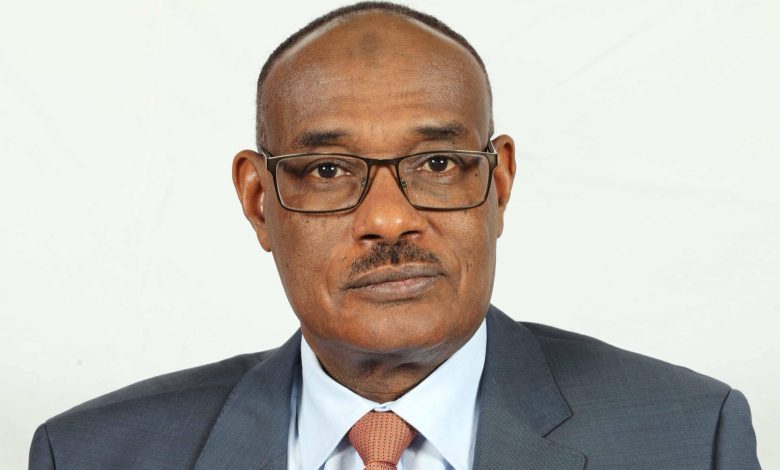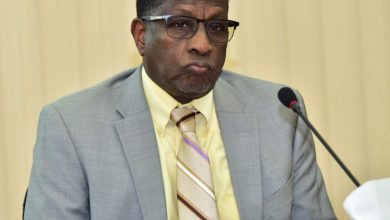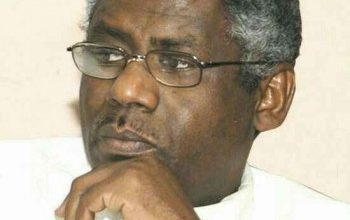When International Justice is Politicized: The American Bounty on Haroun

By Dr. Dirdeiry Mohamed Ahmed
Inasmuch as the state in the US is allergic to interfering in domestic justice, it barely cares about the integrity of international justice. When American interests, or even policy preferences, are at stake, the US does not refrain from politicizing international justice or even sacrificing it. The announcement by the US State Department yesterday that Mr Ahmed Haroun is now included in the US war crimes reward program is just the latest example. Ahmad Haroun is not a fugitive, so a reward can be announced for his arrest. Nor is he currently required to appear before the International Criminal Court, which is, after all, the last court to which different United States administrations, be they Republican or Democratic, are expected to render help. All the more, and as per the Prosecutor of the ICC, there is no sufficient evidence to bring Haroun to trial before that court. Yet, because there is an American policy or diplomatic goal to achieve, the US didn’t hesitate to announce, in a movie-like style, that a bounty is now placed on the head of Mr Haroun.
In the second week of the current Sudan war, which erupted on April 15th 2023, fighting reached the walls of Kober Prison where leaders of the former regime were incarcerated. Prison facilities were shelled and services were affected. On April 25th, 2023, Ahmed Haroun announced in a televised statement that leaders of the former regime imprisoned in Kober had reached an agreement with the authorities to release them from prison due to the breakdown of security and services. A video was also recorded showing how the prison was affected by the fighting and documenting the understanding reached with the authorities to release the detainees. In their statement all former officials stressed that they are ready to return to prison and face charges against them as soon as security is established. Thus, Ahmed Harun is not on the run from justice. Instead, he was released from prison with the permission of the authorities. Currently Ahmed Haroun lives inside Sudan, stays on a well-known address, moves freely inside the country, and attends various events, some of which were monitored by the media. This is in terms of fact.
In terms of law, following the power transition of April 2019, Fatou Bensouda, former ICC Prosecutor, activated the principle of “complementarity” in relation to Sudan’s cases. When the ICC puts into effect this principle, set forth in Article 17 (1) (a) of the Rome Statute, it suspends proceedings with respect to the concerned case allowing for that case to be investigated or prosecuted by a State with jurisdiction over it. On October 20th, 2020, Bensouda arrived in Khartoum, in an unprecedented visit that was hailed by ICC enthusiasts, and delivered a speech at a press conference in which she said the ICC is a “court of last resort”. She added: “This means that national justice systems have the primary responsibility to investigate and prosecute individuals who commit such crimes. If this does not happen, the ICC exists as a mechanism of last resort to prevent failure.” She went even further and declared that the ICC respects the principle of “complementarity” with regard to the case of Ahmed Haroun and others. She said: “We look forward to continuing our dialogue with the Sudanese authorities to ensure progress on these issues with full respect for our roles and mandates and for the principle of complementarity”. Bensouda, on her “historic” visit, did not ask the Sudanese authorities to surrender Ahmed Haroun or anyone else. As Haroun was in the hands of these authorities in Kober Prison, he could have been smoothly deported to the Hague had the Prosecutor so requested. Astonishingly, the person who requested deportation to the Hague was Ahmed Haroun himself. In May 2021, Haroun surprised the Sudanese government by asking to be transferred to the Hague to be tried by the ICC. He justified his request by stating that he no longer trusted the country’s legal structure or the integrity of justice that was lately politicized during the transitional period with its fragile government. Shortly after that announcement, Bensouda visited Sudan for the second time, in June 2021. On that visit, she announced that she had “discussed” with officials the possibility of “handing over Ahmed Harun”. She justified submitting that application, despite the principle of “complementarity”, arguing that Ahmed Haroun is “linked to the Ali Kushayb’s case”, which is being tried by the ICC, and that she considered that “the two men should be tried by the same court”. However, the Sudanese authorities did not accept Bensouda’s request citing the principle of “complementarity”. After leaving Khartoum, Bensouda flew to New York, where she implored the UN Security Council: “I appeal to this Council to convince Sudan to immediately fulfill Haroun’s wish and facilitate his transfer to the ICC without delay.” However, the Security Council also failed to abide by her request. In their interventions, a number of states members to the UN Security Council referred to the principle of “complementarity”, including, ironically, the Permanent Representative of the United Arab Emirates, who held then a non-permanent seat on the Security Council.
As such, it became clear that the arrest warrant issued by the ICC in 2007 against Ahmed Haroun had been suspended. In accordance with the Court’s rules of procedure, that memorandum would remain suspended unless the Sudan was determined to be unwilling or unable to initiate investigations or prosecutions. Such determination is to be made by the Pre-Trial Chamber of the International Criminal Court upon request by the Prosecutor of the Court. In the case of Sudan, that Chamber may make its decision in accordance with Article 17 (3), which gives the Chamber the right to decide whether there has been a total or partial collapse of the national judicial system or that such judicial system is no longer available. It is thus clear from legal viewpoint that Ahmed Haroun is no longer wanted by the ICC.
In the meantime, the ICC seized the opportunity of activating the principle of “complementarity” to achieve other objectives. In February 2021, the former ICC Prosecutor sent to Khartoum a mission of twelve investigators headed by Deputy ProsecutorJames Kirkpatrick to gather documents, evidence and testimonies needed for the case if it is going to be presented for trial. The mission asked the Minister of Justice, Nasreddin Abdulbari, to sign a memorandum of understanding with the ICC allowing the mission to move freely in the country, to perform criminal investigation on Sudanese territory, and to open a permanent office in Sudan. After Bensouda’s tenure expired and Karim Khan, the current ICC Prosecutor took over, the real reason behind Bensouda’s large investigative team was revealed. It was announced by the new Prosecutor that the ICC was in trouble because it does not have sufficient evidence to try the case of Ahmed Haroun. The same was declared to be true with respect to cases of President al-Bashir and General Abdul Rahim Hussein. In his report to the Security Council on January 17th, 2022, Karim Khan said that “the evidence, especially those relating to the cases of former President al-Bashir as well as Mr. (Abdul Rahim) Hussein, should be strengthened”. The Pre-Trial Chamber asked him to clarify what he meant by this serious statement, since the Chamber had already charged the defendants, which meant that it was satisfied that “there were reasonable grounds to believe that the person had committed a crime within the jurisdiction of the Court”. Karim Khan told the Chamber in a reply posted on the ICC website that immediately after taking office he had directed a reassessment of the evidence, collected by Bensouda, in all cases handled by the prosecution office, primarily the case of Darfur, “to determine whether there were still grounds for charging the two individuals and Mr. Ahmed Harun.” (paragraph 9 of the Prosecutor’s reply to the Pre-Trial Chamber). The Prosecutor stated that his Office had concluded that additional evidence was required if these cases were to be trial-ready (para. 10 of the reply). Clearly, this means that the evidence available to the Prosecutor against Ahmed Haroun is insufficient, and there may have been no reasonable grounds for indicting him.
But why this bounty announcement is being made by the US at this particular time after fifteen years of the initial indictment? What matters here most is the decision of the ICC Prosecutor on July 14th, 2023, to open new investigations into the new crimes committed by the Rapid Support Forces in Darfur after the outbreak of this war. When the Prosecutor met with General al-Burhan, the current President of Sudan, in September 2023 in New York, on the sidelines of the UN General Assembly, he officially informed him of the opening of these new investigations. For his part, al-Burhan demonstrated the readiness of Sudan to cooperate with the Prosecutor in these new investigations. Nothing transpired from that meeting to tell us that the Prosecutor had requested the termination of “complementarity” and the extradition of the formerly indicted persons. The focus of the meeting was wholly on new investigations and on enabling ICC investigators working on them to perform their task. Last weekend, the ICC Prosecutor visited Sudanese refugee camps in Chad. On January 29th the Prosecutor briefed the UN Security Council on the cases he is investigating in Darfur. In a twenty minutes long briefing, wholly focused on new investigations, the Prosecutor addressed old investigations only in a glance of one minute. Certainly, in that minute he did not request the Government of Sudan to extradite Ahmed Haroun or any of the accused. It is obvious that the ICC Prosecutor is preparing to request the Pre-Trial Chamber to indict the leaders of the Rapid Support Forces. The new indictment is expected to include senior names in that militia. This is exactly what the United States is concerned about. For them, making such indictment by the ICC is a first-rate political act, not a judicial measure. The United States therefore intervenes proactively to create a “balance”, as it usually do, in the international arena. It is not in the US political interest to portray the “international community”, a term referring to the United States and its allies, as if it recognizes only violations of the Rapid Support Forces. In such situation, demands of justice are the last thing the US cares about.


